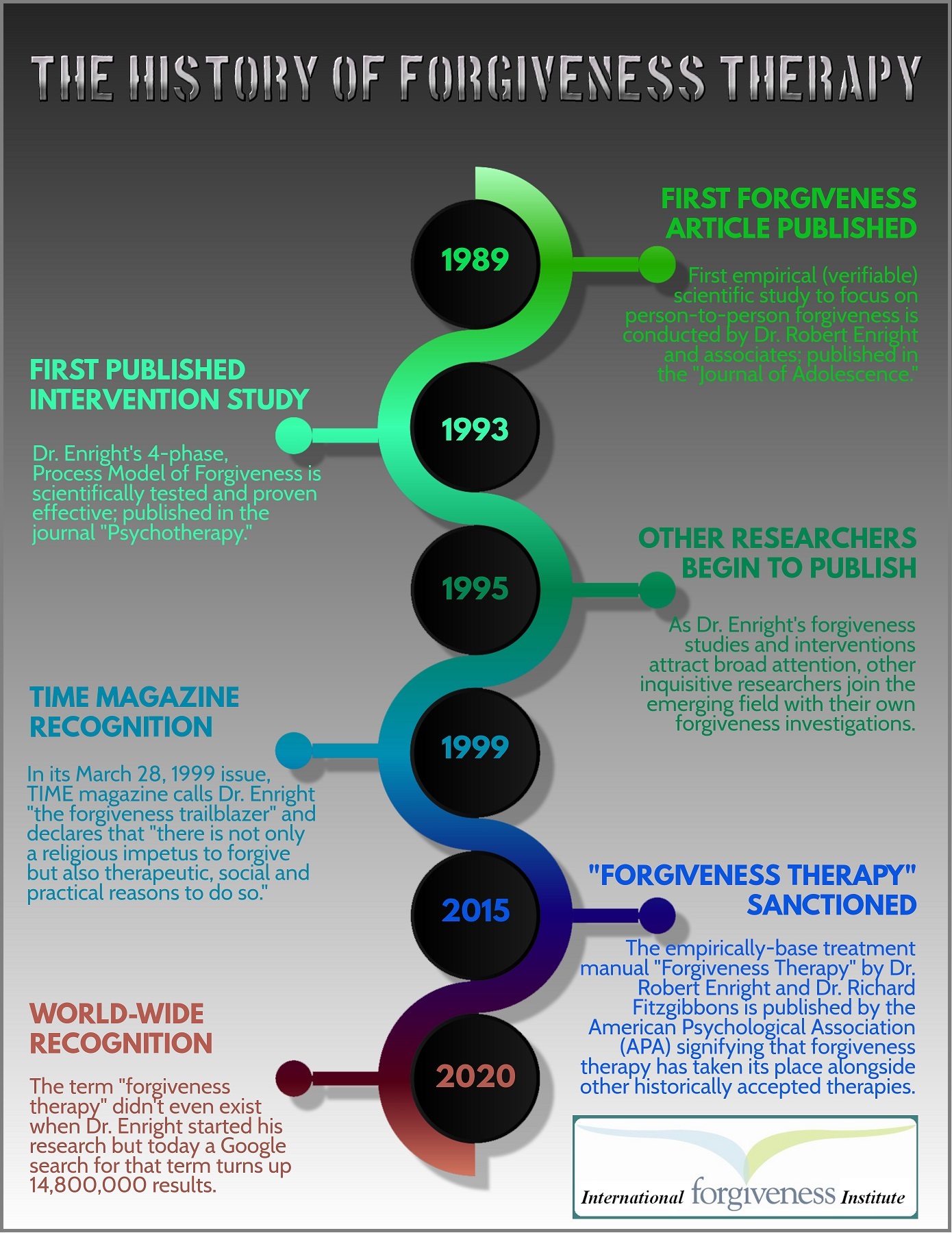Tagged: “Dr. Robert Enright”
The History of Forgiveness Therapy
The prominence of forgiveness and forgiveness therapy in the field of psychology over the past few decades has been well-documented in the scientific literature. Also well documented has been the pioneering and groundbreaking forgiveness work of Dr. Robert Enright within that movement. Here are pertinent milestones:
Your Unfolding Love Story for 2020
In March of 2014, we posted a reflection here in which we encouraged you to grow in love as your legacy of 2014.
The challenge was this: Give love away as your legacy of 2014.
We challenged you again in 2015…..and 2016……and we kept going.
Our challenge to you now is this: Give love away as your legacy of 2020.
One way to start is by looking backward at one incident of 2019. Please think of one incident with one person in which you were loved unconditionally, perhaps even surprised by a partner or a parent or a caring colleague.
Think of your reaction when you felt love coming from the other and you felt love in your heart and the other saw it in your eyes. What was said? How were you affirmed for whom you are, not necessarily for something you did? What was the other’s heart like, and yours?
Can you list some specific, concrete ways in which you have chosen love over indifference? Love over annoyance? If so, what are those specifics and how are they loving? We ask because 2020 is just beginning. When it is January 1, 2021, and you look back on the year 2020, what will you see? Now is your chance to put more love in the world.
Tempus fugit. Your good will, free will, and strong will can point to a year of more love…..and the clock is ticking.
Robert
I am able to do relaxation training and this reduces my stress and anger. Is forgiveness, then, unnecessary for me?
Forgiveness is a moral virtue and need not occur only to aid a person in reducing anger. As a moral virtue, you can forgive as an end in and of itself, because it is good. Also, try to be aware of what happens inside you once you are no longer relaxed. Does the anger well up inside you again? If so, then the practice of forgiveness might be a more permanent solution to your anger than relaxation training by itself.
Learn more at Forgiving is not. . .
What are some tips you can give me to figure out exactly why I am so angry?
In my book, The Forgiving Life (2012), I have an exercise that I call The Forgiveness Landscape. In this exercise, you start in your childhood and try to recall the central unjust incidents and the people who were unjust to you. You then rate your level of anger on a 1-to-10 scale. You do the same for your adolescence, and the same for your adult years. You then order the people/incidences from the lowest (but still significant in your life) to the highest levels of anger. This will give you a profile of your anger. I then recommend that you start with the lowest level of anger and forgive that person. Move up the anger-ladder until you have forgiven the person toward whom you have the most anger. This should aid you in not only gaining insight into your anger, but also at whom you are angry, and then to rid yourself of that anger.
For additional information, see The Four Phases of Forgiveness.
Can I forgive my knee for not working right?
Forgiveness concerns people. We offer kindness, respect, generosity, and even love toward those who hurt us. Your knee cannot be willful in deciding to hurt you. You can be kind to yourself as you struggle with the knee, but the knee itself cannot act in an intentionally wrong way or be in a relationship with you in which both of you share inherent worth. You can accept that the knee is not performing well, but to accept and to forgive are not the same.
For additional information, see Forgiveness Defined.



